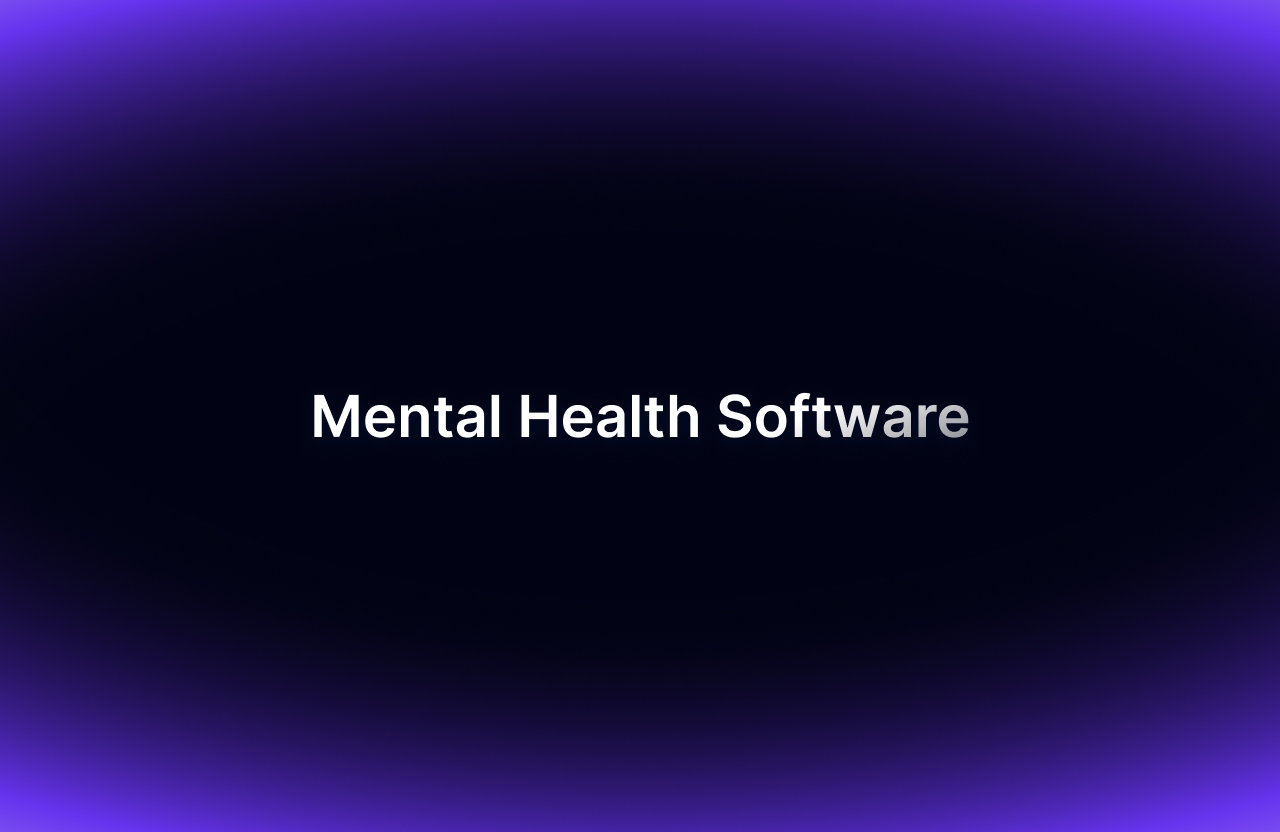- What Does HIPAA Stand For?
- What Information Does HIPAA Protect?
- What are HIPAA Rules and Regulations?
- Who Enforces and Monitors HIPAA regulations?
- Who Does HIPAA Apply to?
- What is HIPAA Compliance?
- How to Become HIPAA-Compliant?
- What Is HIPAA Certification?
- What Information Can Be Shared Without Violating HIPAA?
- What Are The Consequences for Violating HIPAA?
- How to Explain HIPAA to Employees and Patients?
- HIPAA for Employees
- HIPAA for Patients
Table of Contents:
Imagine waking up after a wild night only to find your deepest, darkest medical secrets plastered all over the office water cooler gossip circle. Yikes, talk about a nightmare! But fear not; the HIPAA has got you covered. You see, HIPAA demands that healthcare providers and organizations maintain strict confidentiality of patient's personal health information. They are mandated to not give any data to anyone other than the patients or their authorized representatives to prevent random access, fraud, and breach of privacy. But first, let’s understand the concept better.
What Does HIPAA Stand For?
The Health Insurance Portability and Accountability Act (HIPAA) is a U.S. law that ensures data privacy and security standards aimed at safeguarding patient health information. It was instituted as a result of numerous health data breaches from cyberattacks on insurers and healthcare providers.
Its main purpose is to provide ongoing health coverage for employees who change jobs and to reduce health care costs through standardized electronic transfer of administrative and financial data. The type of information protected under HIPAA is crucial to avoiding penalties and safeguarding individual and corporate reputation.
What Information Does HIPAA Protect?
HIPAA protects identifiable health information, which includes data directly connected to a patient, such as name, social security number, contact information, address, etc. This rule covers all data held or transmitted by covered entities and business associates, regardless of whether it is in digital, paper, or oral form.
Protected Health Information (PHI) does not include employment records related to educational information defined by the Family Educational Rights and Privacy Act (FERPA) or other de-identified data, which includes information that cannot be used to pinpoint a specific individual. HIPAA is elaborate and encompassing, so it's very important to understand the basics.
What are HIPAA Rules and Regulations?
HIPAA includes five titles, and understanding their intricacies and following them judiciously is crucial to avoid infringements. Each of the titles covers various health care aspects, including maintaining coverage when changing jobs, prohibiting denials for pre-existing conditions, setting standards for electronic health information, and handling tax, group health, and life insurance issues.
In addition to these titles, three rules under the Administrative Simplification provisions ensure data integrity and confidentiality.

It’s no surprise that there are several regulations to comply with. This is why the Omnibus rule was created to implement several HITECH provisions to strengthen the health information protection conferred under HIPAA and finalize the Breach Notification Rule.
The regulation obligates HIPAA-covered entities and their business partners to promptly notify relevant parties in case of a security breach involving unprotected personal health data. A breach is an unauthorized use or access to protected information that violates the Privacy Rule's provisions, compromising sensitive data's security or privacy.
There are three exceptions to what constitutes a “breach.” These include:
- When an unauthorized person within an organization unintentionally accesses or uses protected health information.
- When an authorized person unintentionally discloses protected information within the organization.
- When the organization reasonably believes that the unauthorized person of the protected information cannot use the information they have.
Compliance with HIPAA regulations is a serious obligation that several entities must ensure.
Who Enforces and Monitors HIPAA regulations?
Considering the significance of HIPAA, several enforcement bodies have been instituted, depending on the sections catered to. These include administrative requirements, security and privacy rules, breach notification, and investigation of potential criminal activity.
- The Centers for Medicare and Medicaid Services, which enforce Administrative requirements;
- The U.S. Department of Health and Human Services (HHS) Office was set up to enforce the Security, Privacy, and Breach Notification Rules for HIPAA-covered organizations;
- The Federal Trade Commission, which enforces the Breach Notification Rule for organizations not covered by HIPAA;
- The Department of Justice steps in if criminal motives are suspected in the violation, and
- The State Attorneys General can pursue civil or criminal action against organizations in a state where a violation is reported.
Certain entities are required to adhere to HIPAA regulations. Understanding who needs to comply with HIPAA is crucial to preventing potential penalties or violations.
Who Does HIPAA Apply to?
Several entities are responsible for handling PHI and PHRs. PHI is any individually identifiable health information held or transmitted by a covered entity or its business associates that relates to a patient's past, present, or future health, while PHR is an electronic compilation of health information that the patient has control over.
Organizations that manage health information must comply with the HITECH Act, designed to promote and facilitate the implementation of electronic health records (EHR) systems and associated technologies across the United States healthcare sector in addition to HIPAA.

- Healthcare providers – medical and mental health professionals, healthcare facilities, nursing care homes, pharmacies, and more.
- Health plans - health insurance companies, health maintenance organizations, employer-sponsored health plans, and public healthcare programs, such as Medicare, Medicaid, and military healthcare programs.
- Healthcare clearinghouses - organizations that process non-standard health information received from other entities, such as billing providers or community health data managers, into a uniform format.
- Business Associates (BAs) - organizations that are not directly involved in creating, maintaining, receiving, or transmitting protected health information but handle sensitive data when providing services on behalf of a Covered Entity.
- PHR vendors handling personal health records are mandated to ensure HIPAA compliance and adhere to the Breach Notification Rule.
What is HIPAA Compliance?
To achieve HIPAA compliance, organizations must adhere to and meet all relevant standards, requirements, and implementation guidelines set by the HIPAA Administrative Simplification Regulations.
Exceptions to the standards may exist, depending on the activities an organization engages in, its organizational structure, and any circumstances that may require adopting additional policies, practices, or safeguards. It is very important to be HIPAA compliant.
How to Become HIPAA-Compliant?
To achieve HIPAA compliance, organizations must first determine if they must adhere to the regulations before advancing to appoint designated HIPAA Privacy and Security Officers responsible for overseeing compliance efforts. A thorough understanding of what constitutes PHI is essential, followed by an audit to identify how and where PHI is utilized within operations.
Below are the seven steps to ensure HIPAA compliance:

Organizations can pursue HIPAA certification but must be careful to ensure the credibility and legitimacy of any certification program.
What Is HIPAA Certification?
While independent third-party organizations offer HIPAA certification programs and can confirm if healthcare entities meet the necessary technical and administrative safeguards for compliance, it's important to note that the U.S. Department of Health and Human Services (HHS) doesn't require such certifications.
Healthcare organizations should exercise caution and be careful of misleading marketing, as neither HHS nor the Office for Civil Rights (OCR) officially endorses any specific HIPAA certification program.
While you need to watch out for sketchy HIPAA certification schemes, it's also vital to understand the info one can share without breaking any rules. HIPAA doesn't lock everything down you know - there are exceptions for data that doesn't identify patients and for approved purposes like treatment and operations. The main thing is understanding what counts as protected health information versus what's fair game to disclose.
What Information Can Be Shared Without Violating HIPAA?
In 2023, the Office for Civil Rights (OCR) under the HHS received a staggering 300,000 complaints related to HIPAA violations. However, upon further review, over two-thirds were found to be outside the scope of HIPAA enforcement. This primarily resulted from the fact that the entities in question were not bound by regulatory compliance. Additionally, some of the reported disclosures were permissible under the Privacy Rule.
Despite the restrictions, HIPAA allows the sharing of certain information under specific circumstances without needing additional authorization:
- According to the Privacy Act, disclosures required for treatment, payment, healthcare operations, public health activities, and oversight purposes as mandated by law are permissible.
- Information is shared with the patient's written consent. However, individuals retain the right to revoke their authorization at any time.
- Data that doesn't contain protected health information, such as a name or phone number, is maintained outside designated record sets.
Furthermore, it's important to note that violations of HIPAA can still occur, leading to various consequences, even if the information itself is not considered protected health information.
What Are The Consequences for Violating HIPAA?
HIPAA violations can have severe consequences, with penalties ranging from civil, involving punishments and fines, to criminal. Civil violations involving unknowingly violating HIPAA can lead to an accrued fine of up to $25000 per annum at a minimum rate of $100 per violation. On the other hand, criminal violations can, in addition to fines, attract the penalty of imprisonment.
It's important to know how severe the violation committed is to understand the consequences. HIPAA violations are categorized into four tiers based on a penalty structure dependent on the level of culpability and intent.

This tiered approach allows for appropriate penalties based on the specific circumstances surrounding each violation, promoting accountability and encouraging compliance efforts.
There are numerous consequences for violating HIPAA, from minute to severe, but the most common PHI breaches include:
- Unauthorized Access to Healthcare Records
This violates the HIPAA Privacy Rule and can lead to job termination and criminal charges. - Failure to Conduct Regular Risk Analysis
Organizations must practice effective risk management or face severe consequences conferred by the HIPAA. This must be performed at frequent intervals. - Inadequate Security Risk Management
Failure to implement adequate risk management processes to address the risks identified is a common violation that attracts penalties from the Office for Civil Rights. - Delayed or Denied Patient Record Access
Denying a patient access to personal health records, failure to provide the records entirely within the 30-day mandated time frame, or overcharging for copies constitute severe violations, as detailed in our article about privacy in healthcare. - Lack of HIPAA-Compliant Business Associate Agreements
Maintaining outdated business associate agreements that do not comply with the Omnibus Final Rule’s requirement is a frequent violation. - Inappropriate access to ePHI
Failing to implement appropriate access controls for electronic PHI (ePHI) can result in monetary penalties. - Poor Encryption to Portable ePHI
While encryption is not mandatory under HIPAA Rules, failure to implement encryption measures can lead to potential breaches and consequently lead to violations. - Crossing the 60-day Breach Notifications Deadline
The HIPAA Breach Notification Rule stipulates that Covered Entities must issue notifications of incidents involving breaches within 60 days post-discovery. - Improper PHI Disclosure
Whenever PHI is disclosed without permission, a financial penalty is applicable following the HIPAA Privacy Rule. This violation is categorized as follows:- Unauthorized disclosure to a patient's employer.
- Loss or theft of unencrypted electronic devices containing PHI.
- Careless handling of PHI.
- Unnecessary disclosures.
- Disclosing PHI after the patient’s authorization has expired.
- Failure to adhere to the minimum necessary policy. Therefore, organizations must strive to restrain the unauthorized access of protected health data to only those within the workforce and assigned roles that demand such access.
- Unauthorized Release of PHI.
Failure to permanently and securely destroy PHI according to the HIPAA, using methods like shredding, pulping, and degaussing, or secure wiping ePHIs once the retention period has expired can result in violations and financial penalties.
With the knowledge of financial HIPAA violations, one may be curious about the implications of non-financial HIPAA violations. These forms of breaches are usually resolved through:
- Guidance
- Corrective action plans and
- Technical assistance
This will depend on the breach type and severity, the extent of the damage, the previous violation history of the covered entity, and the organization’s willingness to cooperate while under OCR investigation.
Settlements are often necessary to resolve HIPAA violations, but maintaining awareness and diligence in adherence is crucial to every healthcare organization.
How to Explain HIPAA to Employees and Patients?
Adhering to HIPAA regulations is paramount for healthcare organizations to safeguard patients' personal information, whether in physical or digital form. Failure to implement measures can result in hefty financial penalties that could cripple an organization. Therefore, healthcare providers must prioritize comprehensive employee training and patient awareness programs to avert potential breaches.
HIPAA for Employees
To avoid data breaches, there is a need to compile privacy and security policies for the workforce. Also, organizations should create a sanctions policy for those who fail to comply with the requirements.
The best way to explain HIPAA to employees is through dedicated compliance training. Although the HIPAA regulations do not stress the need for annual training, the HIPAA Journal staff recommends organizing short and frequent workshops due to the copious knowledge employees are expected to assimilate. Attempts to explain HIPAA to employees in a one-off session will most likely be unsuccessful.
Most of the explanation centers on use and disclosure, but how policies relating to this requirement are implemented will likely impact the employees themselves. Hence, fostering a deep understanding through interactive, recurring sessions will consequently ensure seamless integration into the organization's culture.
HIPAA for Patients
Following the HIPAA, patients must acknowledge their healthcare provider's Privacy Policy by signing a notice. This policy typically outlines the following rights:
- Requesting access to their medical records at any time.
- Requesting amendments to their medical records when appropriate.
- Limiting who can access their PHI.
- Choosing how the provider communicates with them.
- Filing a complaint if their protected health information is disclosed without authorization.
However, in the absence of any financial or physical harm that may result from an unauthorized privacy breach, patients are not reserved the right to file a lawsuit. CAs and BAs who intentionally violate HIPAA for personal gain are liable to criminal charges with likely imprisonment, to be imposed through the justice system.
In conclusion, being well-informed about HIPAA regulations is crucial for healthcare organizations to protect their reputation, build patient trust, and ensure the highest standards of care, fostering a positive healthcare experience for all.


 Back
Back


